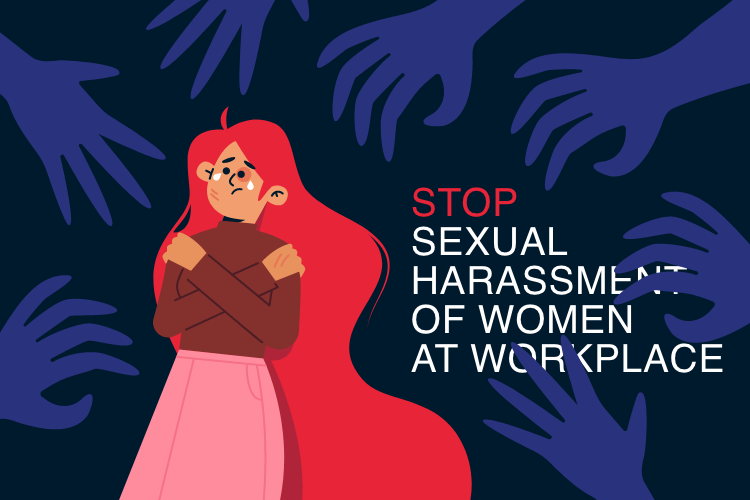POSH Compliance
Do you know that Non-compliance with POSH can cost an employer a monetary penalty of INR 50,000?

What is POSH and why should employers comply with the Law?
In 2013, India took a major step in protecting women in their workplace. For several decades, women were given the least opportunities to work. Later on, when a few of them got the chance to do so, they were harassed and there was nothing they could do. This scenario required undivided attention in a country like India. Finally, in 2013, The Sexual Harassment of Women at Workplace (Prevention, Prohibition, and Redressal) Act (POSH Act) came into action.
The POSH Act gives women rights against any act of sexual harassment at their workplace. To many people’s surprise, even in today’s world, many women do not realize when they are being harassed most of the time. The POSH act brought about a necessary change by making an “Internal Complaints Committee” (ICC) essential at all workplaces. With the help of ICC, women are not only making the required complaints but real actions are being taken to protect these women.
Implications of Non Compliance with POSH Act, 2013
- An employer can be subjected to a penalty of up to INR 50,000 for failure to constitute Internal Complaints Committee.
- The employers have had to pay standard damages when the aggrieved employee drags the matter to the courts for compensation
- Lacking POSH compliance may also harm the reputation of the company and create a hostile work environment.
What Is POSH Compliance?
POSH Compliance is a mixture of services that range from reviewing your existing POSH policy to monitoring the functions of the ICC. We will ensure that complaints are registered and handled correctly as per the Act. The responsibility of an external member in the Internal Committee will be bested upon us. We will handle every aspect, from the redressal of complaints to the reviewing of annual reports.

POSH is important and mandatory, we will take care of following:
- Drafting a Policy/Review of existing POSH-related policy
- Formation of Internal Committee
- Employee Awareness Training
- Internal Committee (IC) Training
- Managing POSH Compliance
- External Committee Member-Handing POSH cases
- Filing Annual Return
We are living in a world where equality and equity both need to be managed successfully. POSH Compliance will help your company gain these significant qualities.
What does POSH term as Sexual Harassment?
Sexual harassment is a topic where nothing should be left unsaid. Stating every aspect of this topic is exceptionally imperative if we want to protect the women of our country. For a woman to know when to file a complaint, she must be aware of every action that is covered under the act. However, there is one piece of advice we hope reaches all the girls and women out there: If a touch or action feels even slightly wrong, do not let it go unsaid.
Going into a bit of technicality, the actions that are covered as sexual harassment under the act are:
- Any demand or request for sexual acts.
- Displaying pornography.
- Sexually colored remarks.
- Sexual advances and physical contact.
- Sexual leering or visual gestures.
- Unwarranted flirting.
- Stalking.
- Any other unwelcome physical, verbal, and non-verbal conduct of sexual nature.
However, this list does not end here. The Act also takes into consideration multiple workplace scenarios which can be considered as sexual harassment if they are in connection with any of the above-mentioned actions.
- A promise of preferential treatment.
- Demanding for sexual favors before giving work benefits
- The threat of detrimental treatment.
- Threat on employment status.
- Giving threats for refusing to comply with sexual favors
- Interference with work.
- Creation of an offensive or intimidating work environment.
- Humiliating treatment that can affect women’s safety or health.
In case of employee working from home, the following pointers are also considered as an act of sexual harassment
- Sending personal and inappropriate messages
- Sexual jokes/forwards/videos/drawings/pics
- Sexual descriptions over the telephone or video conferencing
- Continuous idle chatter over the phone which is of sexual nature
- Unwelcome remarks while communicating
- Digital stalking (stalking in all forms of social media)
- Lewd gossips on colleagues about sexual affairs/sexual orientation/preferences/virginity
- Vulgar humor or language while communicating
- Relentless proposals for physical intimacy
- Encroaching personal space by asking inappropriate questions
- Passing Sexual comments on weight, body shape, size, or figure
Our Scope of Work
PART A
Setting up POSH Framework
- Drafting a Policy/ Review of existing POSH related policy to ensure that the Policies are in line with the provisions of the Sexual Harassment of women at the workplace (Prevention, Prohibition and Redressal) Act 2013.
- Providing posters to be fixed on the company premises.
- Formation of Internal Committee– Guidance provided on right selection of Internal Committee members, documentation to be followed and completed.
PART B
Training and skill building
- Employee Awareness Training.
- Internal Committee (IC) Training for their skill building in being able to handle complaints and conduct inquiry and grant necessary reliefs as per the Act.
PART C
Managing POSH Compliance
- Being an External member of the Internal Committee as per the provisions of the Act.
- Monitor functioning of the working of the Internal Committee,
ensure meetings are held on a timely basis and documented as per the provisions of the POSH Act 2013. - Redressal of complaints, conducting inquiry and Report writing.
- Reviewing the Annual Reports before submission to the Statutory
Authority.
Frequently Asked Questions
Learn How it Works!
Client- Do I need to update the POSH Policy for my company?
Me- Workplace now has a new definition. With this fundamental change in the definition and the added complexities, we suggest Guide to POSH Compliance, which intends to cover the actions employers must take to ensure continued compliance to the Sexual Harassment (Prevention, Prohibition and Redressal) Act of 2013.
How to choose an “External Member”?
Me- A ‘person familiar with issues relating to women’ would mean such persons who have expertise in issues related to sexual harassment and may include any of the following:
• At least 5 years of experience as a social worker, working towards women’s empowerment and in particular, addressing workplace sexual harassment;
• Familiarity with labour, service, civil or criminal law.
Client- In WFH there is no chance of Sexual Harassment, I do not need POSH in my company.
Me- 12% of all sexual harassment cases occur on a daily or weekly basis.Boundary between boardroom and bedroom has blurred.
CLIENT - "SO WHAT DO YOU THINK I SHOULD DO?”
Contact us on +91 9870592991 or drop an email at jyoti@cerebroplanet.com and we will guide you what needs to be done.
